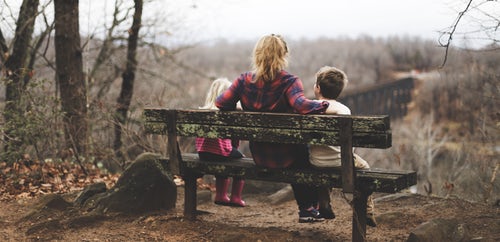
Looking after yourself and your family can seem a low priority during a kidnap or arbitrary detention, but it is essential. Not only do you need to stay strong to navigate the rollercoaster of emotions you are feeling, but you also need to be ready to support the hostage when they return home. Many hostages spend their time in captivity worrying about their family and feeling guilty about the distress caused by their situation. Seeing that you are well when they return home will aid in their recovery process.
Hostage International can support you with these matters through our Family and Hostage Support Service. Contact us to learn more.
Self-care
You cannot expect to carry on as usual, and at times, looking after yourself and others will be a challenge. However, do your best to stick to your usual sleeping, dietary and exercise habits.
Routine and exercise: While your loved one is held hostage, you might feel like your life is on hold. Some aspects of your routine might be affected, and you might not feel like doing some of the things you would normally enjoy. It is important to maintain a routine as it will bring structure to your life during this difficult time. Exercise can help you to maintain your wellbeing. Try to make time for moderate exercises, such as walking, meditation or yoga as it can decrease tension, stabilise your mood, and improve your sleep.
Sleep: Those affected by a kidnapping often experience periods of insomnia, sleep disturbance, bad dreams and daytime fatigue. Try to maintain a regular sleeping pattern and spend time before bed winding down. This can help to prevent overstimulating the brain, which will keep you awake. Meditation, reading a novel and drinking herbal tea before bed can help you prepare for sleep. Avoid using electronic devices such as smart phones, tablets or computers in the run up to your bedtime and try not to read kidnap-related information during this time either.
Diet: When you are under stress, it is crucial that your body gets the vitamins and nutrients it needs to function properly. Eating healthy, nutritious food is one of the simplest ways to alleviate stress and enable you to focus on matters at hand. It can’t remove stress entirely, but it can help to reduce its impact on you. Moderate your intake of unhealthy food, such as sugary drinks, and fatty foods. Try to eat meals at regular times each day.
Supporting young children

Children know when something is wrong and can become mistrustful if they feel they aren’t being told the truth. Good and proportionate communication, consistent parenting and maintaining routines will aid your children’s wellbeing and help them to maintain healthy relationships with family and friends throughout this difficult time.
Explain what has happened to your children in a simple way, avoiding the finer details such as graphic and sensitive information. Allow your children to ask questions and be prepared for further questions as time goes on. You cannot control who your children tell, so only give them information which you are comfortable for them to share. If you are not sure, Hostage International has experts on hand to offer guidance.
It is normal for your children to be upset and misbehave as a result of the emotions they experience during this crisis. Some may close themselves off and want time alone, while others may have angry outbursts. Watch your children’s behaviour, allow them to talk about how they feel and provide reassurance.
Try and keep your children’s routine, such as eating meals at the normal time and attending school and leisure groups. Ensure you all do a family activity once a week, such as playing a board game, going to the park or watching a film together. This will help you to maintain family bonds and spend time together. Never feel guilty about enjoying family time.
Allow children to be children. Expecting children to be more grown up in the wake of a traumatic incident can be detrimental to their development and impact their relationships with their siblings. Although a parent is absent, do not overburden your children with additional household responsibilities. Where your children assist with household chores, show that you are grateful for their assistance, but do not delegate parental responsibilities to them.
Information for teenagers

Having a loved one, such as a parent or sibling, taken hostage is scary. You might worry about how they are being treated, or the conditions in which they are held. You might feel helpless and that there is nothing you can do to bring them back. You might be frustrated that adults are not telling you everything that is happening. There will be significant changes in your life, but most of them will be temporary. You can get through this; below are some tips to help make the situation a bit easier.
Make sure that you have someone who you can speak to about how you are feeling. In a kidnapping or arbitrary detention, your family and those handling the case might ask you to keep it secret, even from your closest friends. They will do this if it is in the best interests of the hostage’s safety. This can be really hard, as you might wish you could confide in your best friend or a teacher. Talk to your family about it and try to work out if there is a solution- maybe you can both find a trusted adult or friend who you can speak to confidentially.
You might also be asked to increase the privacy settings on your social media accounts. In some cases, you might need to close your accounts completely. This might be really hard for you, especially if this is one of the main ways you keep in touch with your friends. Talk to your family about this, see if there is a compromise that will allow you to maintain contact with your friends, but that will work around the need to keep your loved one safe. We have dedicated a chapter on managing social media.
Some teenagers feel that the incident is their fault, although it is entirely out of their control. This might be because they had an argument with their loved one before the kidnap or because they parted on bad terms. Rest assured that these have nothing to do with why your loved one was taken. The hostage will be thinking of you, and they will not want you to worry. Hostage-taking is a cruel and terrible crime, which is entirely out of your control.
The most important thing you can do is take care of yourself. Try to do what you can to sleep well and maintain what routine you can. If one of your parents or carers has been taken hostage, you might be asked to help out more around the house. If you are asked to help, it doesn’t mean that you have to carry more responsibility. You can help adults out and also find time to have fun in your usual ways.
Dealing with the impacts of trauma

Having a loved one kidnapped or arbitrarily detained puts a lot of stress on a family. It is normal for such an incident to have an emotional impact on family, friends and the wider community. From the outset, family members can feel anxious, helpless and overwhelmed by the situation, and if the case is not resolved quickly, family members can also harbour feelings of anger and frustration. Everyone reacts in their own way. While there is no right or wrong way to cope, it is important to be mindful of signs that you or others might be struggling under the strain.
In general terms, the psychological impact of having a family member taken hostage is similar to that of being exposed to other trauma, including terrorist attacks and natural disasters. But the sustained uncertainty and complex nature of a kidnapping or detention means families will often experience ongoing traumatic stressors.
Family members can struggle with:
feelings of fear, sadness, anger and irritability;
being anxious, hyper-vigilant and unable to switch off;
impaired memory or difficultly concentrating;
feeling numb, confused and disorientated; and
wanting to withdraw from normal life.
If these feelings and symptoms continue or become overwhelming, you may want to seek professional support. Very few family members will go on to experience post-traumatic stress disorder (PTSD) – most are able to recover and go on to live happy and fulfilled lives.
Meaningful social support and self-care during and after exposure to a trauma can help to mitigate symptoms which might otherwise become chronic and result in PTSD. Although family members are encouraged to keep the kidnap incident secret, it is important to establish a small circle of trust amongst a select group of people who can help to support you. You can find support in friends, family, your dedicated government and law enforcement contacts, Hostage International and other specialists.
Hostage International can support you with these matters through our Family and Hostage Support Service. Contact us to learn more.
